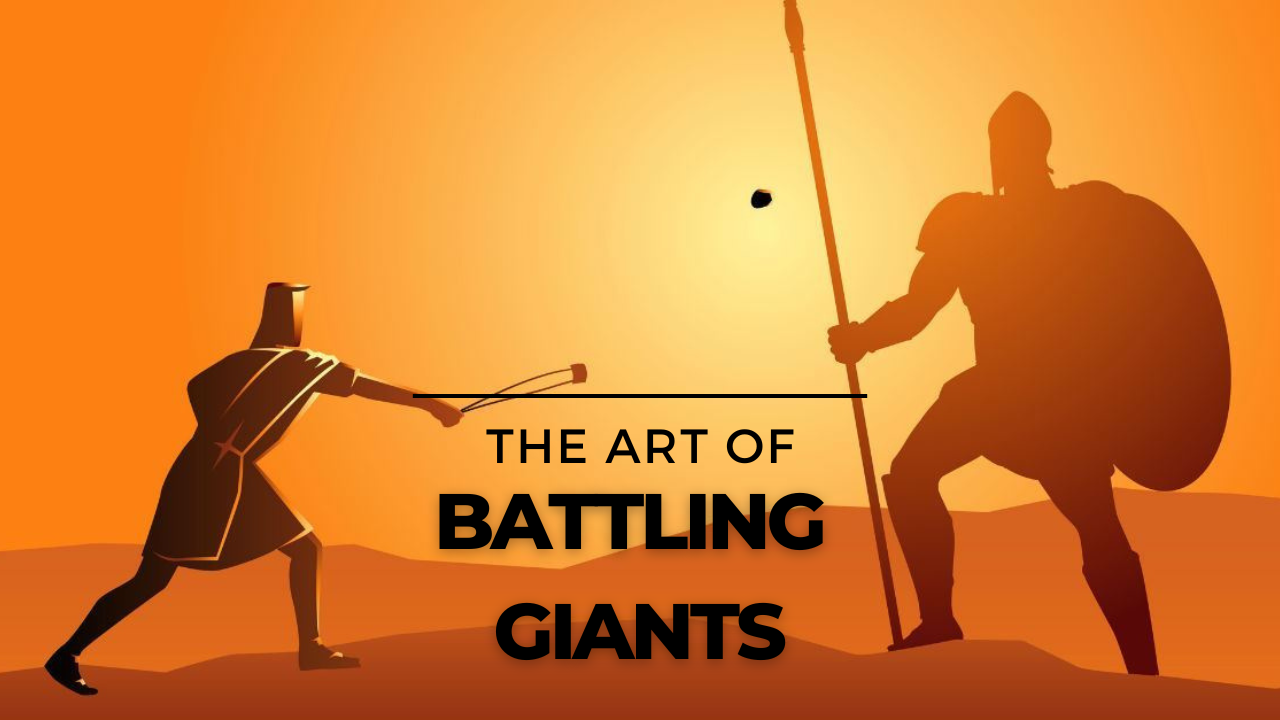
There are few narratives as universally recognized as David and Goliath, a tale that has come to represent the epic struggle between the underdog and the mighty. It was also explored in a book by Malcolm Gladwell, “Underdogs, Misfits, and the Art of Battling Giants”. While Gladwell is known for his intriguing explorations into human behavior, he touches on something profoundly personal and relatable in this particular work, the concept of grief as a Goliath that many of us battle.
Facing Our Goliaths
In our work with Spark of Life, a grief support initiative, we’ve encountered countless Davids. These are individuals who face the daunting giant of deep, sometimes unbearable loss. This giant can take many forms – death, divorce, childhood trauma, or countless other personal tragedies. However, the grief, the pain that ensues, is universal. It’s a towering Goliath that seems to drain the very life from those it afflicts.
Yet, like David, those who grieve are not lifeless. Rather, they are full of life, though often unaware of it due to their profound hurt and pain. Their struggle to face the formidable giant of grief can make them feel helpless and hopeless.
The Paradox of Being a Grief “Expert”
In Gladwell’s other work, “Outliers: The Story of Success,” he explores the concept of expertise, suggesting that it requires 10,000 hours of practice in a particular field. In the context of grief, such an assertion seems paradoxical. While there’s no denying that the understanding and the ability to guide others through their grief requires significant investment, the idea of becoming an ‘expert’ in grief sounds rather disheartening.
Grief is an intimately personal experience, one that fundamentally alters the individual who endures it. Who, then, would want to be an expert in something so profoundly challenging? Perhaps, the better term might be a grief “guide,” someone who helps others navigate their way through the journey of grief.
The Need for Grief Knowledge
Despite the aversion to being termed a grief ‘expert,’ there is an undeniable need for more grief knowledge in our society. Misconceptions and myths about grief often contribute to unnecessary suffering. Phrases like “I can never be happy again after a certain kind of loss,” perpetuate the narrative of grief as an insurmountable Goliath. It’s not true; grief can be faced, confronted, and ultimately incorporated into life.
It’s not about forgetting or discarding the grief. Rather, it’s about learning to carry it differently, to let it shape you, but not define or defeat you. There’s a profound difference between existing forward, with grief as a crippling burden, and living forward, where grief has been integrated into your life in a more manageable and meaningful way.
Shattering Grief Myths
Being an ‘expert’ in grief, by Spark of Life’s definition, doesn’t mean knowing everything about grief, but rather being open-minded, willing to challenge grief myths that can chain us to our losses, rendering us victims instead of victors. It means understanding that while grief is a universal experience, it’s also uniquely personal. There’s no one-size-fits-all approach to handling grief.
From Victims to Victors
Grief, like any formidable adversary, can either defeat us or propel us to new heights. Grief can change us, and while it’s a change borne out of loss, it doesn’t have to be a change for the worse. By grappling with grief, by descending into the depths of the pit and then ascending, we can grow.
Standing Tall Against Grief
In the battle against grief, we can draw inspiration from the timeless tale of David and Goliath. By embodying the spirit of David, we refuse to let grief define us indefinitely. Instead, we choose to learn, grow, and challenge the myths that keep us bound.

Spark of Life exists to instill hope that, though life can never be the same after loss, it can be rich and fulfilling. We are here to walk beside you on that journey, and hope begins now. We are a non-profit organization.